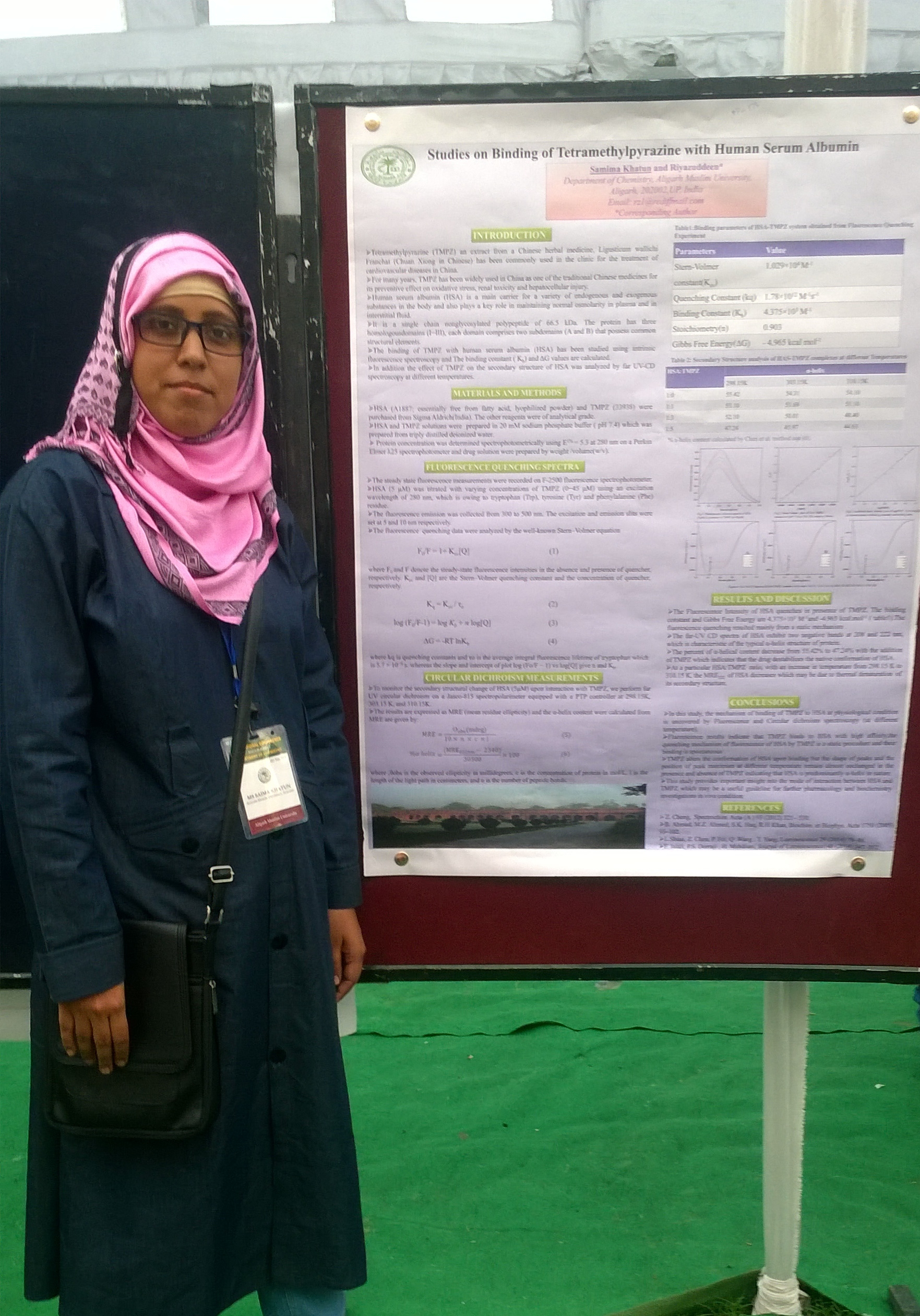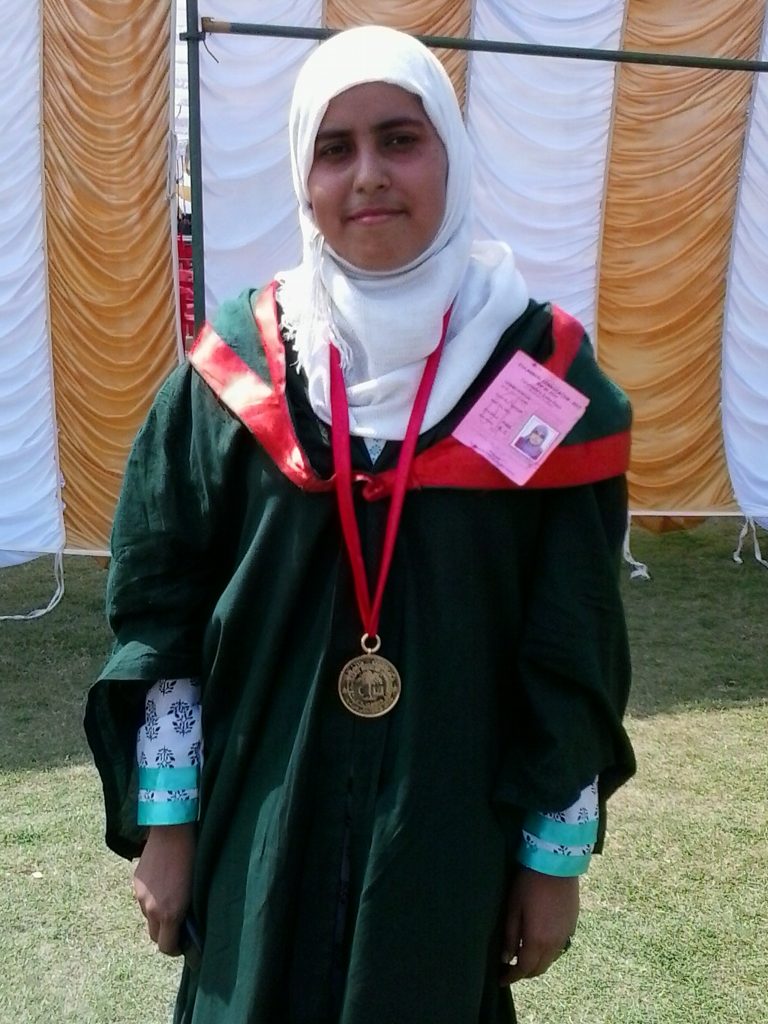From a Village in West Bengal to University College, London – Remarkable Journey of Dr. Samima

By Mirza Mosaraf Hossain, TwoCircles.net
Dr. Samima Khatun, the daughter of an imam from West Bengal’s East Burdwan district, has been awarded a travel grant to present her paper at an international conference in London. The conference is co-organized by Imperial College London and University College London. The grant is nearly 2 lakhs worth in Indian rupees. Though all of her well-wishers are happy at her journey to this stage of achievement, it was never easy for a girl belonging to a lower-middle-class Muslim family. Her journey is quite inspiring especially to women and to those belonging to her social context.
She will be delivering her paper titled Exploring the Thermodynamics And Conformational Aspects Of Sulindac And Chlorpromazine Binding With BSA at the 26th International Conference on Chemical Thermodynamics: ICCT-2020 that is going to be held between 19 and 23 July 2020 in London.
The travel grant is sponsored by Nature Research, under its subfield, the Communications Journals, which offers it in three subjects: Biology, Chemistry, and Physics. She was awarded the Communications Chemistry grant which is given to only one candidate all over the world in the field of Chemistry. Three grants, each of €2,500 (approx. 2 lakhs in Indian rupee), are available to promising early-career scientists whose research is focused upon one of the three subject areas covered by the journals to support the costs of traveling to and participating in a conference.
Nature Research is a multidisciplinary research journal, originally from Nature—the leading international weekly journal of science first published in 1869 having its principal offices in London, New York, Berlin, Shanghai and Tokyo, and offices in cities worldwide. It publishes primary research, reviews, critical comment, news and analysis on scientific innovations, discoveries and it has nine million visitors every month to its official site.
The 29-year-old woman is from Nischintapur village in East Burdwan’s Khandaghosh locality. Samima did her matriculation and higher secondary from Al Ameen Mission. Then she completed her B.Sc, M.Sc in Chemistry at Aligarh Muslim University. Last year she awarded Ph.D. degree under the supervision of Prof. Riyazuddeen, Department of Chemistry, at the same university. She also worked as a Research Associate in a CSIR Project in the Department of Chemistry, University of Delhi. Currently, she is working as an Assistant professor in the Department of Chemistry, at Aligarh Muslim University on a contractual basis.
Apart from all this, she is also a devout practicing Muslim. She wears scarf and offers five times prayer. Samima, the second daughter of Sk Rahamat Ali, has four other siblings and the younger sister is taking preparation for government jobs after pursuing graduation in Psychology from AMU. The 57 years old Rahamat Ali, a graduate in Political Science from the University of Burdwan, runs a small stationery shop at a nearby village, Khejurhati, were at the same place he used to be the imam of the village mosque with a remuneration of Rs. 700 per month. But for the last two years because of his old age problem, he could not go there and only runs the shop.
In course of pursuing her Ph.D., she got married to Dr. Tahasin Mondal, a fellow scholar in the Department of Sanskrit of Aligarh Muslim University in 2017. While speaking to Twocircles.Net she shared that it was because of these two men for whom she has been able to be where she is now. From her early childhood life, she experienced poverty because of her father’s unemployment even after being a graduate with a good score, the lack of scope to continue education in a remote rural setup. But the zeal for pursuing her father’s dream, her determination for achieving something noble and her parents’ insistence to overthrow life’s hurdles were then the real strengths for her through which she has reached this success. “My dreams come true partially when my parents sent me to Al Ameen Mission where I got admission with very nominal monthly fees, 120 rupees per month. The Secretary of the Mission agreed to admit me because of my zeal for study, for my dreams he had been able to read in my eyes and that’s why he even paid me 1250 per month till I started stipends. It was because of him that I came to this stage of success”.
Neither her family, religion, nor her villagers were any hindrances for her education for being a Muslim girl who would stay away from home most of the time of her life. It was because of their support and encouragement, her balancing of being a ‘Muslim girl’, a practicing Muslim to a modern educated girl is so refined that she has been followed as a role model by the local Muslim girls and by their parents. The parents send their girl children for higher studies only after following her. “I was never told either by my parents or by any of my villagers that I should not leave home for education. Rather my father paid extra care to send me first to the Mission when I was in the ninth standard. Even the fact is that he only spent his earnings only for his daughters and not for his son for education purposes. It was later followed by my co-villagers and they started sending their girl child outside the home for their education.”

When she was asked whether her in-law’s family had any problem with her education even after getting married and staying outside in-law’s home, she replied, “Not at all. Like my family, my husband, my in-laws have told me to do whatever I wish to pursue and forbade me to worry about it.”
When asked about her plan, she said, “I want to go back to my home state once I get a government job there. I have many wishes to follow for my community as it is lagging in all sorts of fields, especially for Muslim women whose condition is worst”. Her message to the Muslim women, “no one can change your life except your self-respect, hardworking, proper education. So have it, do it, grab it. You women! Change your life by yourself.”
Indeed, examples like Samima are breaking the mythic notion against the conservative representation of Muslim women. Samima is the rarest of rare example among Bengali Muslim women to come to be followed not only by her locals but also throughout the Muslim families across the State as well as across the Muslim world at large.
